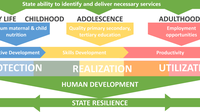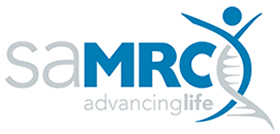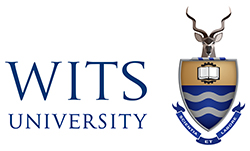
What led you to decide on this research question?
Given the challenges so much of the world faces, we have been preoccupied with attempting to answer the question- what do we prioritise when there is such great and varied need, very limited resources, and little state capacity? In this instance we applied this question to priority setting for health in a fragile, conflict affected state.
Could you talk us through how you designed your study? What was important for your team as you created the study team?
The project which led to this publication was part of a larger multi-country study. The larger study was focused on early nutrition, which provided our starting point. This also meant that we had a strong team already focused on this starting point. We were then able to draw in additional expertise to incorporate our interest in how interventions targeted at a major problem interact with the wider context, in this case a fragile one.
What challenges did you encounter during your study?
We struggled to obtain detailed subnational data on Burkina Faso in the public domain. Our French speaking team members were able access French language databases which increased our reach, however the limited data we found and used remains a limitation of our analysis.
What did you find most striking about your results? How will this research be used?
We highlight that focusing on a single aspect of human need, even when that need is great, can be harmful. It is imperative that the context and the challenges across the life-course are considered carefully. In fragile states this means considering how efforts to address that fragility interact with other investments in health, human development, and state capacity. We suggest that it is best to consider the bi-directional relationship between state fragility and human development outcomes by asking how investments in addressing one can act to improving outcomes in the other. A failure to do so can miss opportunities to contribute to state building, and in the worst cases even further weaken the state.
What further research questions need to be addressed in this area?
We hope the investment case in our paper illustrates the need to move away from siloed examination of investments in nutrition, and other early life interventions towards a more holistic approach that accounts for the protection, realisation and utilisation of human development across the life-course. We need to be asking how what we invest in now interacts with context and other investments over time. This is something we hope to explore further in our forthcoming research.
Why did you choose PLOS Global Public Health as a venue for your article?
In our experience PLOS Global Public Health is a space in which researchers can attempt to meaningfully grapple with complex subject matter in ways that challenge the norm. We were privileged to have our paper “Realising the potential human development returns to investing in early and maternal nutrition: The importance of identifying and addressing constraints over the life course” published in the inaugural 2021 issue of PLOS Global Public Health. When it came to extending the framework presented in the this first paper, our ideal was to have the second paper also find a home at PLOS Global Public Health, given the somewhat unconventional approach of both papers.
Disclaimer: Views expressed by contributors are solely those of individual contributors, and not necessarily those of PLOS. Article originally appeared here.




